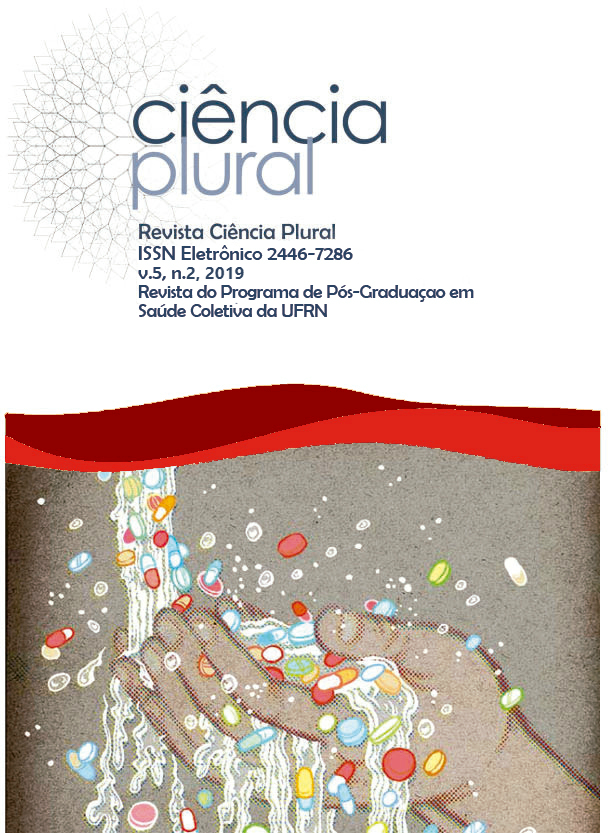EVALUATION OF THE ATTRIBUTE DERIVED FAMILY ORIENTATION IN CHILDREN'S HEALTH
DOI:
https://doi.org/10.21680/2446-7286.2019v5n2ID16306Abstract
Introduction: The family and social context influences health situations during childhood, with family orientation being an important mediator between family and health professionals. Objective: to evaluate the presence and extension of the family orientation attribute from the perspective of the relatives of children enrolled in childcare services in the city of Santa Cruz, Rio Grande do Norte. Methodology: This is an evaluative, quantitative, descriptive study with a sample composed of 186 parents / guardians of children aged 0 to 2 years of childcare services in the city of Santa Cruz, Rio Grande do Norte, Brazil, in 2016, using a questionnaire validated in Brazil called PCA Tools, version for children. Results: The results show that the professionals do not know the families (48.9%), including the main diseases (45.7%); however, 79.6% said yes about the family history. For 63.4%, they do not know about family jobs, but are aware of the difficulty in obtaining financial resources for medication (47.3%). Concerning the ideology about treatment and self-care, 50.5% believe that it is. Conclusion: Although the health services of the Primary Health Care Network make it possible to bring health services closer to the user, as well as to their family and social context and have been responsible for great advances in public health, it is still necessary to implement measures and strategies to ensure compliance with the family orientation attribute.
Downloads
Downloads
Published
How to Cite
Issue
Section
License
À Revista Ciência Plural ficam reservados os direitos autorais referente a todos os artigos publicados.

 Português (Brasil)
Português (Brasil) English
English Español (España)
Español (España)










2.png)
